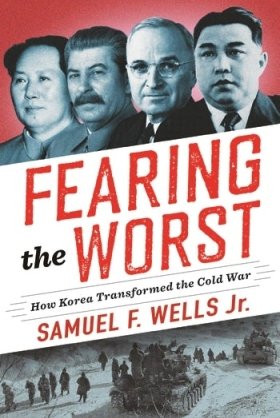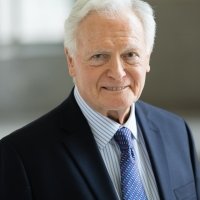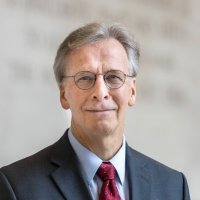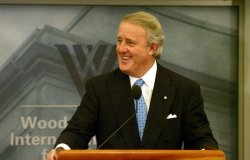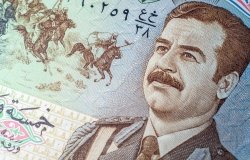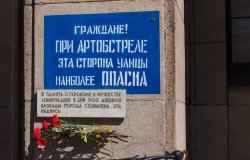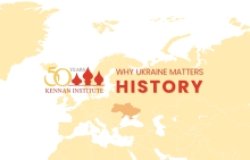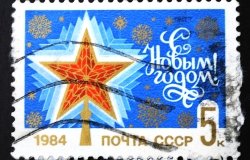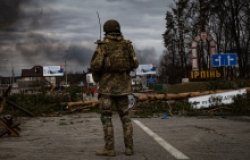Fearing the Worst: How Korea Transformed the Cold War
After World War II, the escalating tensions of the Cold War shaped the international system. Fearing the Worst explains how the Korean War fundamentally changed postwar competition between the United States and the Soviet Union into a militarized confrontation that would last decades.
Overview
After World War II, the escalating tensions of the Cold War shaped the international system. Fearing the Worst: How Korea Transformed the Cold War explains how the Korean War fundamentally changed postwar competition between the United States and the Soviet Union into a militarized confrontation that would last decades.
Samuel F. Wells Jr. examines how military and political events interacted to escalate the conflict. Decisions made by the Truman administration in the first six months of the Korean War drove both superpowers to intensify their defense buildup. American leaders feared the worst-case scenario—that Stalin was prepared to start World War III—and raced to build up strategic arms, resulting in a struggle they did not seek out or intend. Their decisions stemmed from incomplete interpretations of Soviet and Chinese goals, especially the belief that China was a Kremlin puppet. Yet Stalin, Mao, and Kim Il-sung all had their own agendas, about which the United States lacked reliable intelligence. Drawing on newly available documents and memoirs—including previously restricted archives in Russia, China, and North Korea—Wells analyzes the key decision points that changed the course of the war. He also provides vivid profiles of the central actors as well as important but lesser known figures. Bringing together studies of military policy and diplomacy with the roles of technology, intelligence, and domestic politics in each of the principal nations, Fearing the Worst offers a new account of the Korean War and its lasting legacy.
Samuel F. Wells Jr. is a Cold War Fellow in the History and Public Policy Program at the Woodrow Wilson International Center for Scholars, where he founded the International Security Studies Program and served as associate director and deputy director. His publications include The Strategic Triangle: France, Germany, and the United States in the Shaping of the New Europe (2006).
Selected Quotes
Samuel Wells, Cold War Fellow, Former Deputy and Associate Director of the Woodrow Wilson Center; Former Director of the West European Studies Program, the Woodrow Wilson Center
“The Cold War was a political and economic contest before Korea. And, afterwards, it took on a very different nature.”
“The commitment of the three communist states engaged in the war, and their willingness to take risks, was much higher than I had anticipated. Washington was responding to things that happened in Korea that they had neither anticipated nor desired to join… They really had a very severe shock with the Chinese intervention in October of 1950, which is the critical turning point in the war. And, at that point, they feared the country was on the edge of World War III, and it’s that fearing the worst, the worst case, that is the principle argument, and therefore, the title, of the book.”
“One of the big questions has always been: Why did Stalin change? And, essentially, it’s because he was blocked in his ambitions to break up NATO in Western Europe. The Americans, Truman and Acheson, in January, had made it fairly clear that they were consolidating U.S. interests in Asia. And they laid out a defense perimeter for the United States that did not include Taiwan or South Korea. So communist analysts said: ‘Okay, this means they won’t defend.’ Well, that was not necessarily the assumption made in Washington, but they just didn’t want them to be part of the defensive perimeter. So that’s why Stalin decides he can go in at a lower cost.”
Hosted By

History and Public Policy Program
The History and Public Policy Program makes public the primary source record of 20th and 21st century international history from repositories around the world, facilitates scholarship based on those records, and uses these materials to provide context for classroom, public, and policy debates on global affairs. Read more

Cold War International History Project
The Cold War International History Project supports the full and prompt release of historical materials by governments on all sides of the Cold War. Through an award winning Digital Archive, the Project allows scholars, journalists, students, and the interested public to reassess the Cold War and its many contemporary legacies. It is part of the Wilson Center's History and Public Policy Program. Read more

North Korea International Documentation Project
The North Korea International Documentation Project serves as an informational clearinghouse on North Korea for the scholarly and policymaking communities, disseminating documents on the DPRK from its former communist allies that provide valuable insight into the actions and nature of the North Korean state. It is part of the Wilson Center's History and Public Policy Program. Read more

Hyundai Motor-Korea Foundation Center for Korean History and Public Policy
The Center for Korean History and Public Policy was established in 2015 with the generous support of the Hyundai Motor Company and the Korea Foundation to provide a coherent, long-term platform for improving historical understanding of Korea and informing the public policy debate on the Korean peninsula in the United States and beyond. Read more
Thank you for your interest in this event. Please send any feedback or questions to our Events staff.
